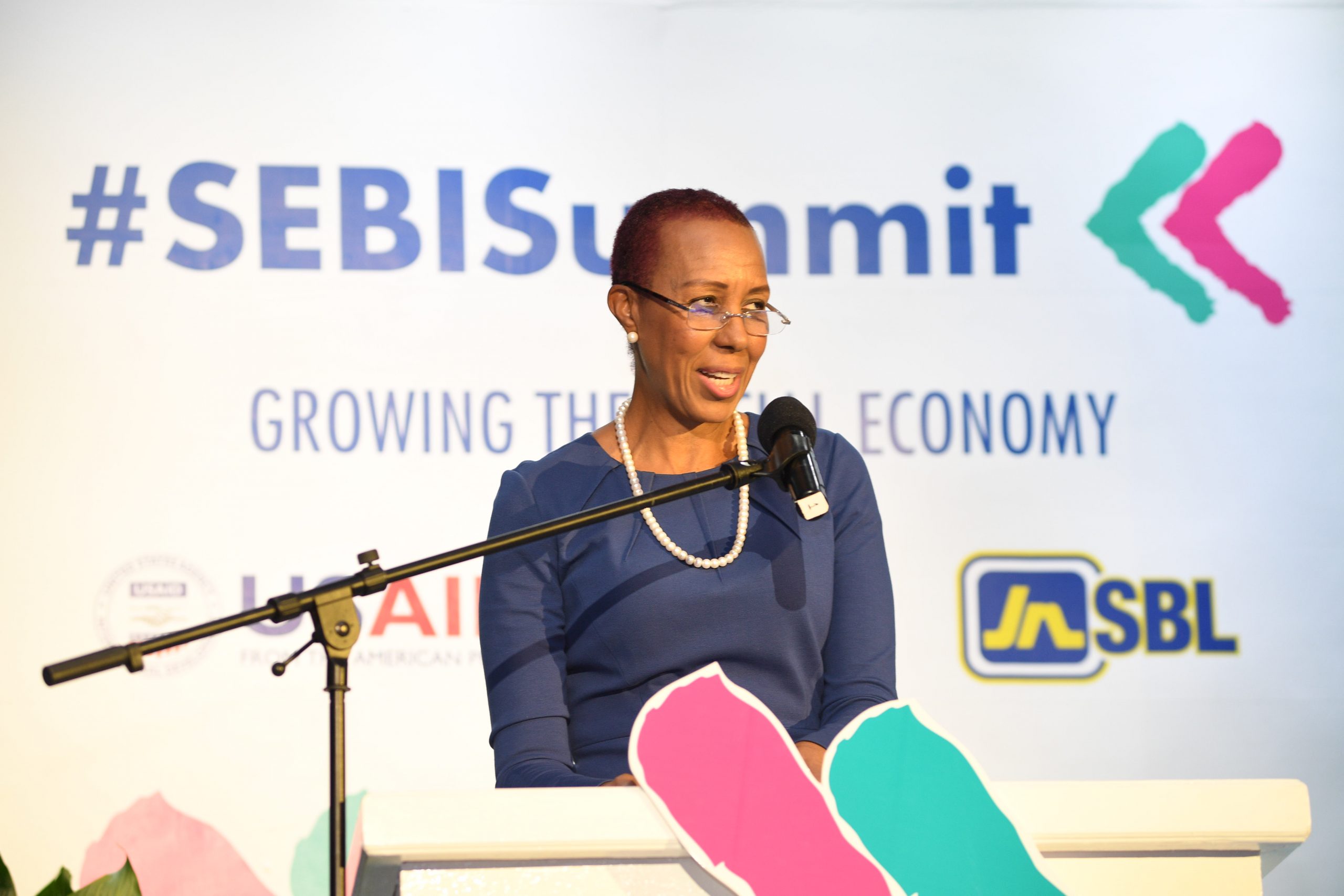State Minister in the Finance and Public Service Ministry, Hon. Fayval Williams, says the Government is exploring the role of social enterprises in the development of vulnerable and crime-prone communities.
Social enterprises refer to those businesses that trade to tackle social problems, improve communities, people’s life chances or the environment. They make their money from selling goods and services in the open market and then reinvest their profits into the business or the local community.
Addressing the opening of the second staging of the Social Enterprise Boost Initiative (SEBI) Summit, at The Jamaica Pegasus hotel in New Kingston, on January 30, Mrs. Williams noted that critical to the development process in those communities is the partnership to be formed among stakeholders, such as the private sector and non-governmental organisations (NGOs) on one hand and the Government on the other.
“We, as a Government, are willing to sit at the table and share ideas with NGOs, social enterprises and the private sector to explore how institutions can successfully combine social values and goals with commercial business practices…to redound to social good,” she said.
SEBI aims to create an enabling business environment for social enterprises in Jamaica and to assist them in transitioning their grant-funded operations into a viable profit-making business.
The State Minister acknowledged that there would be “no easy solutions” in the discussions with the partners due to the delicate balance between social enterprises and commercial businesses that needs to be navigated as well as the fragility that exists with residents in vulnerable communities.
However, Mrs. Williams noted that the Government must take reasonable steps to facilitate the stability of social enterprises.
“With a rethinking of the way we do business, I am confident that together we can, with the establishment of a set of objectives, create social and economic value and generate income. We can create opportunities for job creation and community development that will result in an improvement in the lives our citizens,” she said.
Meanwhile, Industry, Commerce, Agriculture and Fisheries Minister, Hon. Karl Samuda, commended the Jamaica National Building Society (JNBS) Foundation for its work through SEBI.
He emphasised that the country needs to be more engaged in the concept of the SEBI, “which is extremely noble but requires exposure.”
Mr. Samuda argued that SEBI is a similar concept to the Government’s overall national thrust for the expansion and development of small and medium-sized enterprises.
For her part, Mission Director of the United States Agency for International Development (USAID), Maura Barry-Doyle, and a sponsor of the event, said the SEBI Summit is a method of ensuring Jamaica’s health and prosperity.
She also indicated that the Summit is an important platform to promote social enterprises.
In his remarks, General Manager of JNBS, Earl Jarrett, said SEBI seeks to improve and increase the number of social enterprises by providing sound leadership in the development of the Jamaica social enterprise sector.
SEBI, he informed, also seeks to infuse the appropriate levels of governance and management to ensure that the organisations achieve sustainability.
Social entrepreneurs attending the two-day Summit will benefit from focused discussions from speakers on the social enterprise sector.
Among the speakers of the event are Derreck Kayongo of the Global Soap Project from the United States and Doris Leung from Hong Kong and her Diamond Cab Service.
The Summit was organised by the Jamaica National Building Society (JNBS) Foundation.
See the original article here!




